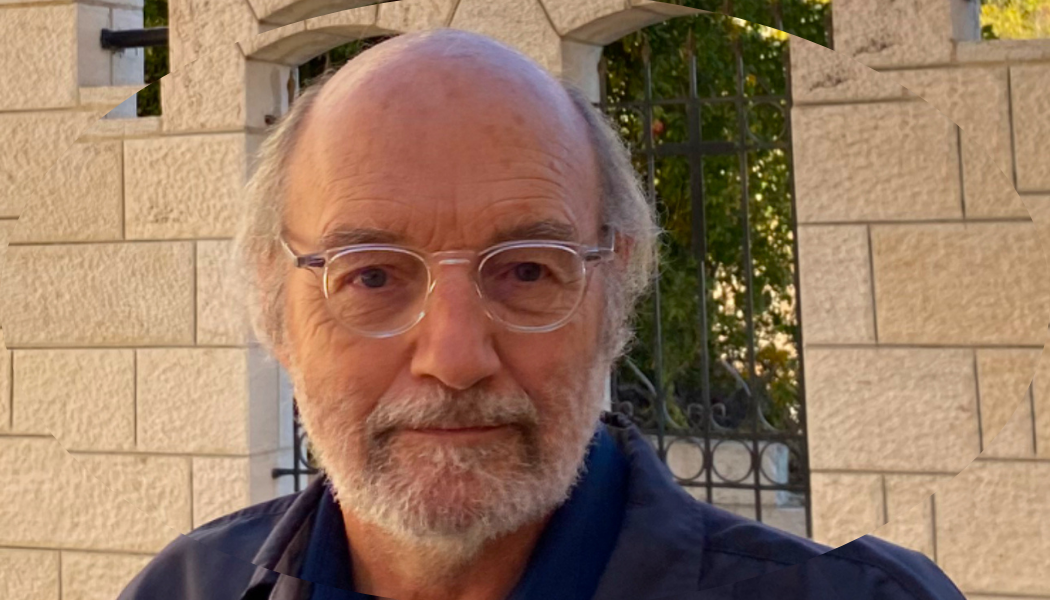Day 8: Yearning for a peaceful life
Among many challenging experiences today, we spent time in Sderot, a town in Israel of about 30,000 Israelis, about two kilometres from the Gaza border. The people of Sderot have suffered. Some were killed on October 7, 2023. Some are still hostages.
Yellow flags and ribbons fly on balconies and electrical posts, as in the US song,
“Tie a Yellow Ribbon.” A circle of yellow-painted shoes is installed on one of the roundabouts. Posters with portraits of hostages are glued on walls, with slogans in Hebrew: “Bring Them Home.” Yellow-painted chairs line the sidewalks.
The police station was destroyed; already there’s a monument on the site, formed of a dozen tall pillars. There are bomb shelters beside most of the bus stops. We were instructed how to take shelter if we heard the warning sirens.
From a hill above Sderot we could see into northern Gaza, a kilometer or so away across an empty no-man’s-land. Columns of smoke were rising where Israeli shells landed, and the smoke was a haze blowing across the entire cityscape. Sderot is a rich agricultural area of orchards, vineyards, and irrigated fields of vegetables. In Gaza there is a genocidal engineered starvation.
In the middle of a roundabout in Sderot is a statue of children dancing and holding up a globe.
We met in a Sderot Children’s Centre, in a room decorated with cartoon characters, children’s art, a mural of Winnie the Pooh and Roo embracing, to hear from Jewish Israeli Roni Keidar. She lives in the village closest of all to the Gaza border and knows many Palestinians. Like almost all Israelis and Palestinians she knows, she wants a kind and peaceful life, what she calls simply a neighbourhood. On October 7, Hamas militants invaded the house where she lives with her son and grandchildren. Her granddaughter, who was home alone, hid in a closet beneath the stairs with their dog. The militants left and blew up the house next door.
Roni and her Gaza friends formed an organization called Other Voices. They meet for dance, song, improv drama. Every Friday, before October 7, her group would gather on the border with one of several small groups from Gaza. Even now they still chat on social media. They want to know how each other is doing. They still are friends.
“Most Palestinians are not terrorists,” she said.
“We all deserve a better life,” she said.
“About all this I cannot keep quiet.”
Roni Keidar has five children, seventeen grandchildren, and three great-grandchildren.
In the middle of a roundabout in Sderot is a statue of children dancing and holding up a globe.
*About the author
Bill Butt is retired after writing for CBC Television, teaching at Western University in London, Ontario, and thirteen years as Overseas Personnel for the United Church of Canada, based primarily in Angola and Mozambique. He is a member of the CFOS Communications Committee. Along with a dozen other Canadians, he participated in a Solidarity Pilgrimage, November 11-21, 2024, hosted by Sabeel Ecumenical Liberation Theology Center in Jerusalem. Each day of the pilgrimage, he wrote about his personal experience.


